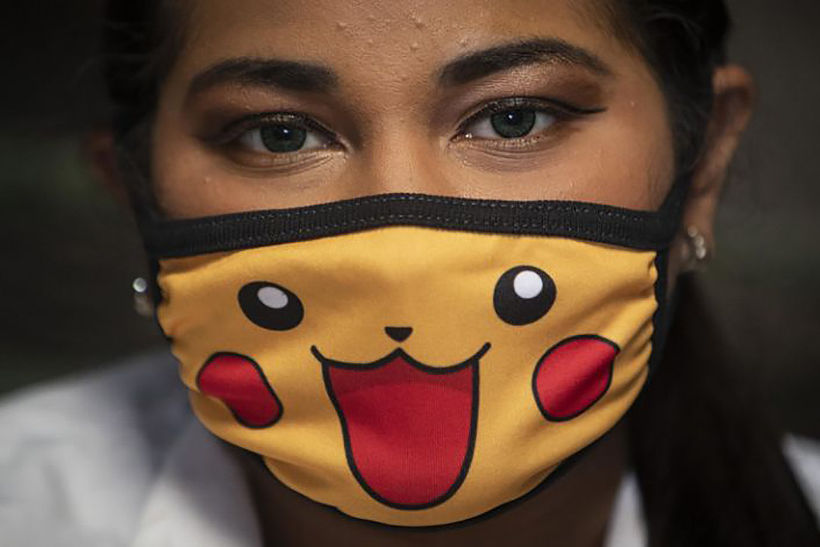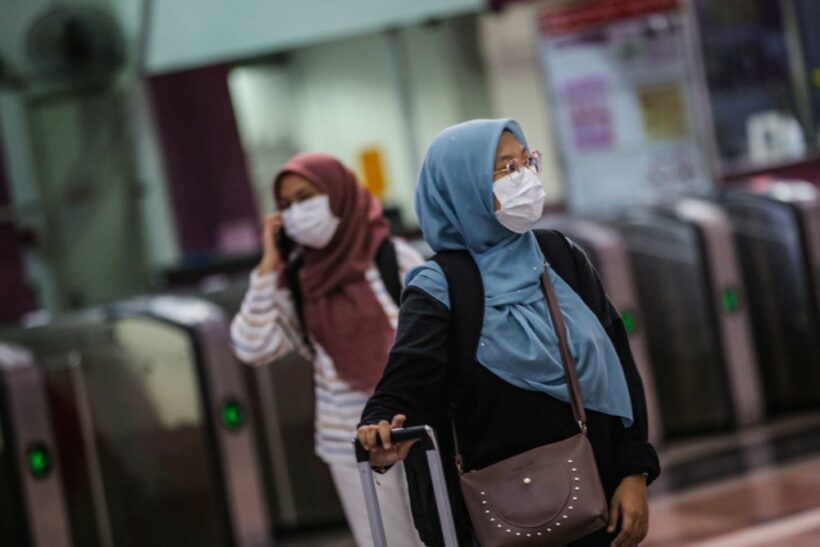Covid-19 coronavirus questions and answers

Everything you wanted to know which we answer to the best of our current knowledge….
1. How does the virus/infection spread?
Mostly spread through contact with an infected person through coughing, sneezing, nasal secretion and saliva. It is understood that the virus can be airborne for at least a short time. So just being in the same vicinity as an infected person could put you at risk.
Video clip below from the Joe Rogan podcast recommended for viewing… let’s face it, you probably have more time now
2. How long does Covid-19 survive for in the external environment?
There is still no clear information how long the Covid-19 virus can survive on surfaces – but it could be up to a few hours. However antiseptics and alcohol solutions (at least 60% strength) can kill the virus. Keep your home environment clean.
3. How should most people protect themselves, in order to minimise risk of being infected with the Covid-19 virus?
Avoid close contact with sick people. Actually, for now, avoid close contact with anyone. Maintain a social distance of at least 1-2 metres. Avoid touching your eyes, nose and mouth without washing your hands (we do it sub-conciously all the time). You should frequently wash your hands with soap and water. Or at least 60% alcohol-based hand wash.
If you have a fever, cough, have difficulty breathing, notify your doctor immediately and make a note of your recent contacts and travel history. Only check in at hospital if your symptoms become bad. Keeping hospitals free for acute patients at this time is an important part of the management of the disease.
4. What are the symptoms of patients with the virus?
Common symptoms include respiratory symptoms, fever, cough, shortness of breath, difficulty breathing. And in severe cases, symptoms could result in pneumonia, kidney failure, or even death. Generally, acute symptoms have been seen only in older patients but many younger people have become profoundly ill from the disease.
5. How much does it cost to check for the Covid-19 virus?
The Thai government has announced that the Covid-19 is a ‘state of emergency’ and every hospital must accept all patients at risk. If any patient is detected as positive of the Covid-19 they will receive free medical services and everything is free of charge IF they test positive for the virus. If they test negative they may be expected to pay for the tes.
(Foreigners should check with their insurers and ask questions at the hospital they are checking into. The Thaiger understands that many private hospitals are charging exorbitant prices for testing in some cases. Ask questions first to avoid unpleasant surprises later). If you employed by a Thai a company and have a valid work permit you will be covered under the Thai universal health system. But if you are over 60 years of age the Thai UHC will not coer you.
6. Can the infection spread in swimming areas?
There is currently no reported infections from swimming pools, or people swimming in pools or any other water sources.
7. Traveling from ‘high risk countries’ like South Korea, Iran, Italy after returning do you need to go in quarantine for 14 days?
Yes. The Ministry of Public Health recommends refraining from going out in to public places, measuring your body temperature daily until 14 days have elapsed. If any you experience symptoms – fever, cough, illness – contact your doctor for advice.
8. Where can I get go check for the Covid-19 virus?
For Bangkok…
- Faculty of Medicine Siriraj Hospital
- Faculty of Medicine Ramathibodi Hospital
- Faculty of Medicine Chulalongkorn University
- Rajavithi Hospital
- Bamrasnaradu Institute
- Faculty of Medicine Prince of Songkla University
- Bumrungrad Hospital
- Faculty of Allied Health Sciences Thammasat University
- Maharat Nakhon Ratchasima Hospital
- Faculty of Tropical Medicine Mahidol University
- Srinagarind Hospital Faculty of Medicine Khon Kaen University
- Sokol Malaria Research Center Microbiology Laboratory
- Lampang Hospital
- Sawanpracharak Hospital
- Biomolecules Laboratory (Thailand)
- Military Medical Science Research Institute (Thai side)
- Military Medical Science Research Institute (United States side)
- Bureau of Disease Prevention and Control in the city limits
- Office of Disease Prevention and Control 4 Saraburi
- Nakhon Pathom Hospital
- Is the elderly more likely to have a Covid-19 infection than general people?
Everywhere else…
- Go to your nearest public hospital. Private hospitals will charge you their normal fees and you MAY NOT BE COVERED for Covid-19 related illness with your current insurance.
9. Who can catch Covid-19?
Everyone has the same possibility to contract the virus at every age because it is an emerging disease, therefore no one has immunity to this new disease, hence why it is described as a novel coronavirus. It doesn’t matter if you’re healthy, a small child or an adult. But the severity of the disease will vary in individuals. If you are older or have underlying medical conditions, particularly hypertension, high blood pressure, immuno-compromised conditions, kidney disease or HIV, you should be particularly careful.
As the disease progresses from being a pandemic to endemic (just part of the world population), communities will slowly build immunity and will be unable to carry the virus and infect others.
10. The Covid-19 self-test kit that gives the results within 10 minutes from South Korea. Does it really work?
The Covid-19 Virus Test Kit is considered a medical device that has not been registered with the Thai FDA yet, and currently, not all brands are registered. These products currently have the opportunity to produce inconsistent results.

11. Declaration of the different stages of the Covid-19 virus are divided into how many stages. And what do they mean?
Stage 1: Infected people from abroad
Stage 2: There is a limited number of infections in the country and citizens infections are contained.
Stage 3: The virus is spreading within the country from person to person. At this stage the virus will start to spread quickly. No matter what the Thai government officially declares, Thailand is now in the early stages of Stage 3.
12. If infected with the Covid-19 virus, and then recovered, can the virus return again?
In principle, like other coronaviruses, you should have a better immunity to Covid-19, which should prevent you having a second bout of the disease. It should also prevent you from being a carrier in the future. But there is no definitive answer to this question as the spread is still very new and full studies have not yet had time to mature. The answer is probably ‘no’, but not 100% at this stage.
13. If travelling with a patient with Covid-19, can the disease be transmitted or not?
Yes. But if there is no coughing or sneezing, and the person is wearing a facemask, the likelihood of being infected with the Covid-19 virus is less likely, but not absolute. A safe distance of 2 metres is recommended when in the same areas as an infected person. Better still, don’t be in the same area!
14. Can the virus be transmitted through the air duct system that is used in the office space?
It is unlikely that the Covid-19 virus can be spread through ducts, given the time and distances involved. But there is no definitive answer on this issue up to date. It is understood that the virus is airborne and is spread the same way most flus and coronaviruses are spread (extended interview below explains).
15. How to behave when travelling by public transport ?
Try to stand in less crowded spaces, find your own corner. You should use a face mask every time you use the service as a courtesy to other Thai travellers who may fell more assured if you are wearing one. Carry alcohol or hand washing gels that are more than 60% concentrate to clean your hands incase you have used the handle on bus service or the BTS. Holding onto a hand strap? So has everyone else.
Better still, avoid public transport if you can for now.
16. Which countries has Thailand announced as a dangerous contagious area?
China (including Hong Kong, Macau), South Korea, Italy and Iran. This is being updated from time to time.
17. Can COVID-19 enter the body through a wound?
No evidence has been found that the Covid-19 virus can infect wounds in any way. But don’t risk it. If you have an open wound you need attention immediately, Covid-19 or no Covid-19.
18.Will people recover from the Covid-19 virus?
General patients have a high chance to recovering from the disease. 80% of patients are recovering at the moment without critical illness, other than coughing, sneezing and general flu-like symptoms.But 10-20% of patients do end up with more sever symptoms which may involve hospitalisation. And between 1-4% of patients die, as we follow the current statistics. The new coronavirus is thought to be between 10-20 times more deadly than the seasonal flu.
19. Will washing my clothes and cloths kill the Covid-19 virus?
Washing clothes with detergent and putting them out in the sun will be enough to kill the Covid-19 virus.
20. People who have been vaccinated against influenza Is it possible to prevent the Covid-19 virus?
No, different virus. There is no vaccine for now and any vaccine development and testing may take a year, or more.
21. Will all people who have been infected with the Covid-19 virus die?
No, most people will recover. Statistically, many of the patients that have had critical symptoms, or died, have been either elderly or had underlying health issues. Maintaining a healthy diet, getting lots of sleep, and maintaining social distancing and good hygiene are your best chances for prevention and recovery.
22. What are the characteristics of patients who meet the criteria for Covid-19 virus?
- Fever 37.5 °C and up, with cough, runny nose, sore throat, wheezing
- Have a history of risky contact in the past 14 days – flight, airports, public spaces, hospitals
- Traveling from communicable disease areas/areas with ongoing outbreaks
- Occupations that are in close contact or with people travelling from communicable disease areas/areas with ongoing outbreaks
- Close contact with the infected/infected suspect
23. Can herbal medicines such as ‘Andrographis paniculata’ (Fah Talai Rob) can cure the virus?
Andrographis paniculata is a herbal remedy that the Department of Thai Traditional Medicine and Alternative Medicine recommend to treat or relieve symptoms of colds. However the Covid-19 virus is a corona virus and not in the influenza group. Also medical authorities has never used ‘Fah Talai Rob’ to try to treat Covid-19.
There are no herbal remedies that have shown any demonstrable prevention or cure for viruses.
Here are some reasonable and proven preventions to avoid catching Covid-19…
- Avoid close contact with people who are sick (probably good advice at any time).
- Put distance between yourself and other people if Covid-19 is spreading in your community. This is especially important for people who are at higher risk of getting sick. 2 metres is a safe distance.
- Avoid touching your eyes, nose, and mouth. Maintain high standards of hygiene.
- Stay home if you are sick and inform your family or workplace if you are unwell.
- Cover your cough or sneeze with a tissue, then throw the tissue in the rubbish bin.
- Clean and disinfect frequently touched objects and surfaces using a regular household cleaning spray or wipe. This includes tables, doorknobs, light switches, countertops, handles, desks, keyboards, toilets, faucets, and sinks.
- Follow medical recommendations for using a face mask…
- The US Centres for Disease Control and the World Health Organisation do not recommend that people who are well wear a face mask to protect themselves from respiratory diseases, including Covid-19.
- Face masks should be used by people who show symptoms of Covid-19 to help prevent the spread of the disease to others. The use of face masks is also crucial for health workers and people who are taking care of someone in close settings (at home or in a health care facility)
- Face masks may be in short supply and they should be saved for caregivers.
- Note: The flimsy, cheap, paper face masks will do almost nothing to help anyone.
- Wash your hands often with soap and water for at least 20 seconds, especially after going to the bathroom, before eating, and after blowing your nose, coughing, or sneezing.
- As an alternative, use an alcohol-based hand sanitiser with at least 60% alcohol.
- Always wash hands with soap and water if hands are visibly dirty.
SOURCE: Thai Gov
Latest Thailand News
Follow The Thaiger on Google News:

























